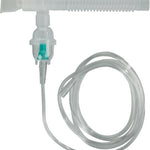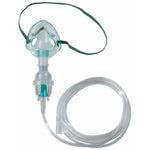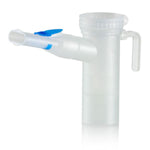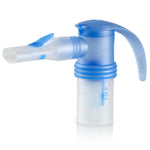You have no items in your shopping cart.

Having trouble sleeping at night? Here are 6 tips to sleep better.
Environment
We all know that the environment can have a huge impact on how we sleep. It has even more significance when we are suffering from a respiratory illness. To avoid discomfort from allergies and coughing overnight make sure you have a dust free bedroom. Don’t allow pets to sleep on your bed or be in your bedroom at anytime as animal hair exacerbates allergy symptoms. Cold air especially from air conditioners or open windows irritates the airways and causes coughing, keeping you awake at night. Make sure the room is warm and free of humidity. Nebulizers and CPAP equipment are always available from OnlyNebulizers.com in case therapeutic assistance is needed.
Position in bed
The supine position or lying flat position does not allow for full lung expansion especially when you are unwell. Sleeping propped up with two or more pillows behind your back, raising your head, will help you to breath easier meaning you can sleep better. Likewise, placing something under the mattress to raise the head of the bed slightly is an effective alternative to assist with increasing lung expansion.
Related Posts
Recent Posts
-
Why 0.9% Saline is a Smart Choice for Nebulizer Treatments
Why 0.9% Saline is a Smart Choice for Nebulizer Treatments
-
Tips for Controlling Asthma During the Spring and Summer
Tips for Controlling Asthma During the Spring and Summer
-
Medications Used with Nebulizers
Medications Used with Nebulizers
-
CPAP Questions and Answers
CPAP Questions and Answers
-
How Nebulizer Treatments Help COPD (Chronic Obstructive Pulmonary Disease)
How Nebulizer Treatments Help COPD (Chronic Obstructive Pulmonary Disease)
-
7 Best Tips for Traveling with CPAP Machines (Continuous positive airway pressure)
7 Best Tips for Traveling with CPAP Machines (Continuous positive airway pressure)
Tag Cloud
- allergies
- allergy nebulizer
- asthma
- battery operated nebulizer
- children's nebulizer
- compact nebulizers
- copd
- expert nebulizer advice
- inhaler
- kids nebulizers
- maintnence
- nebulizer
- nebulizer accessories
- nebulizer care
- nebulizer compressor
- nebulizer for allergies
- nebulizer for kids
- nebulizer kit
- nebulizer machine
- nebulizer machine for asthma
- nebulizer maintenance
- nebulizer mask
- nebulizer questions
- nebulizer tubing
- nebulizers
- pari nebulizer
- portable nebulizer
- portable nebulizers
- saline
- saline for nebulizer
- saline nebulizer
- saline vial
- sterile saline
- tips
- travel nebulizer
- travel nebulizers
- troubleshoot








